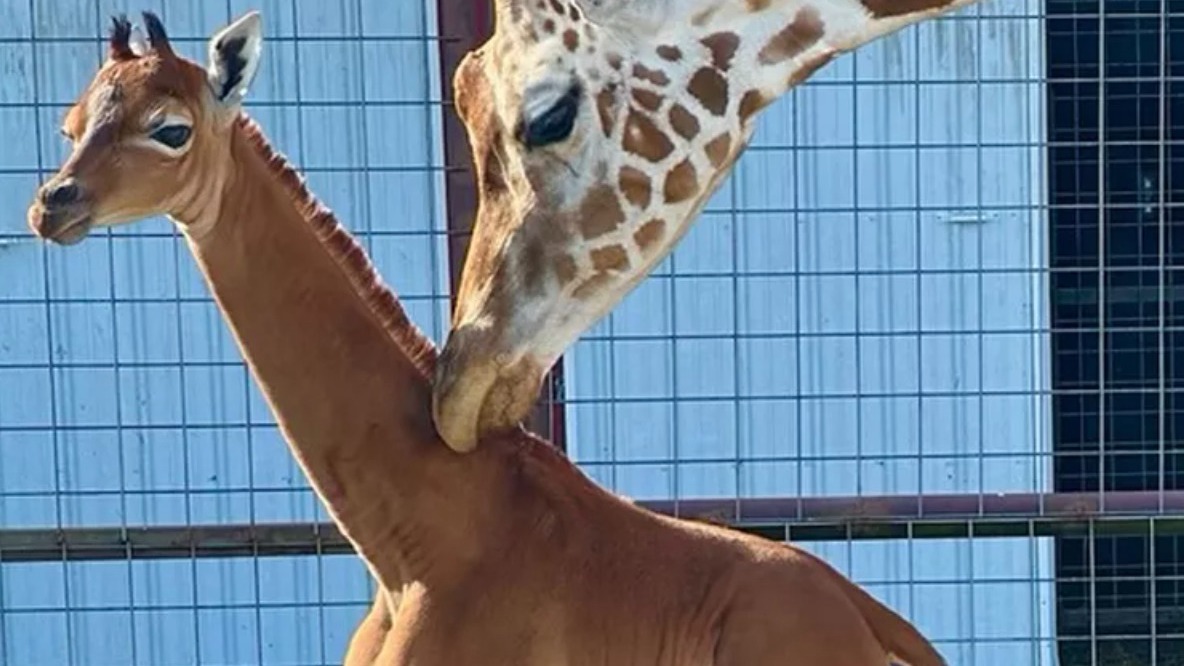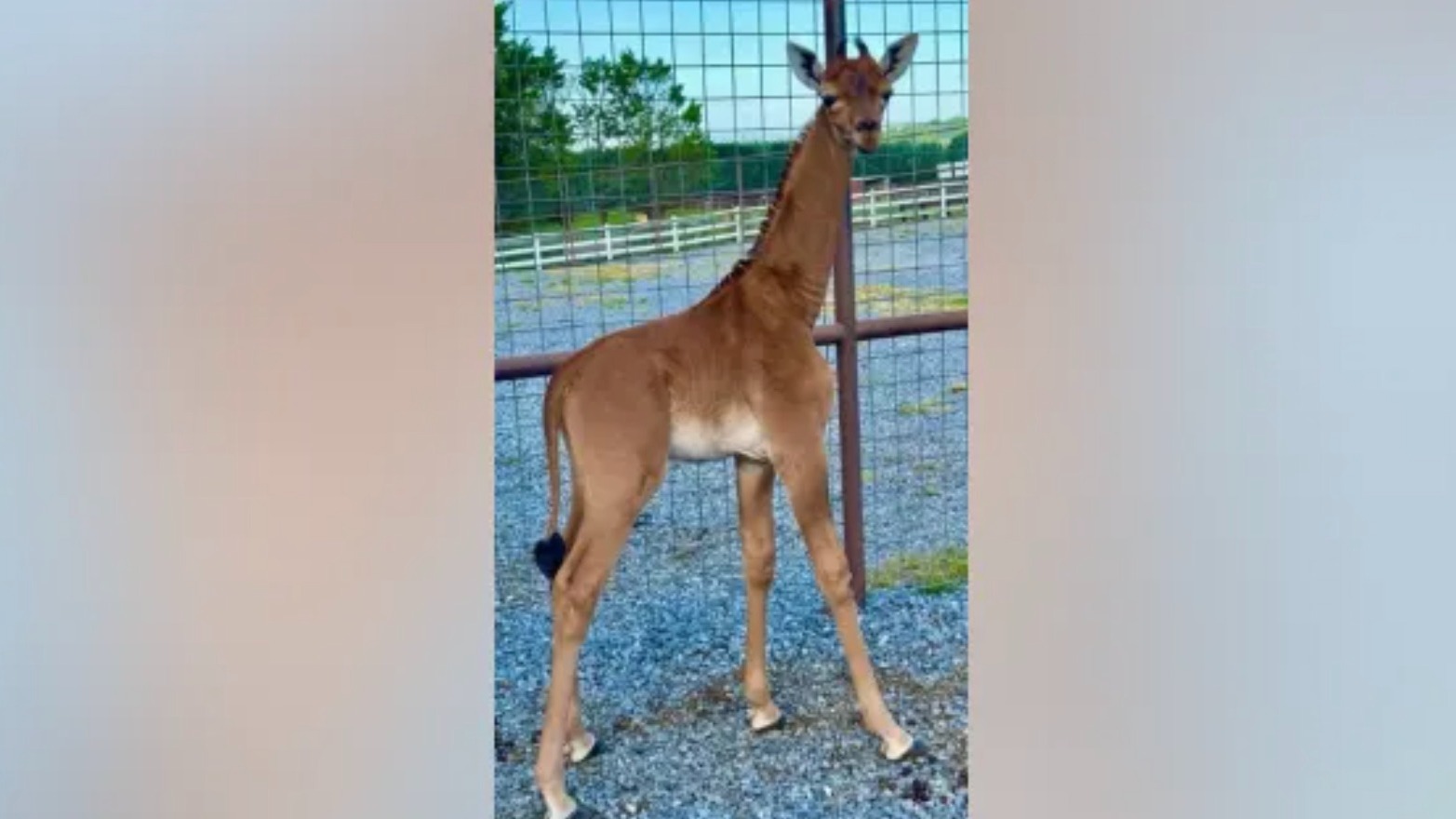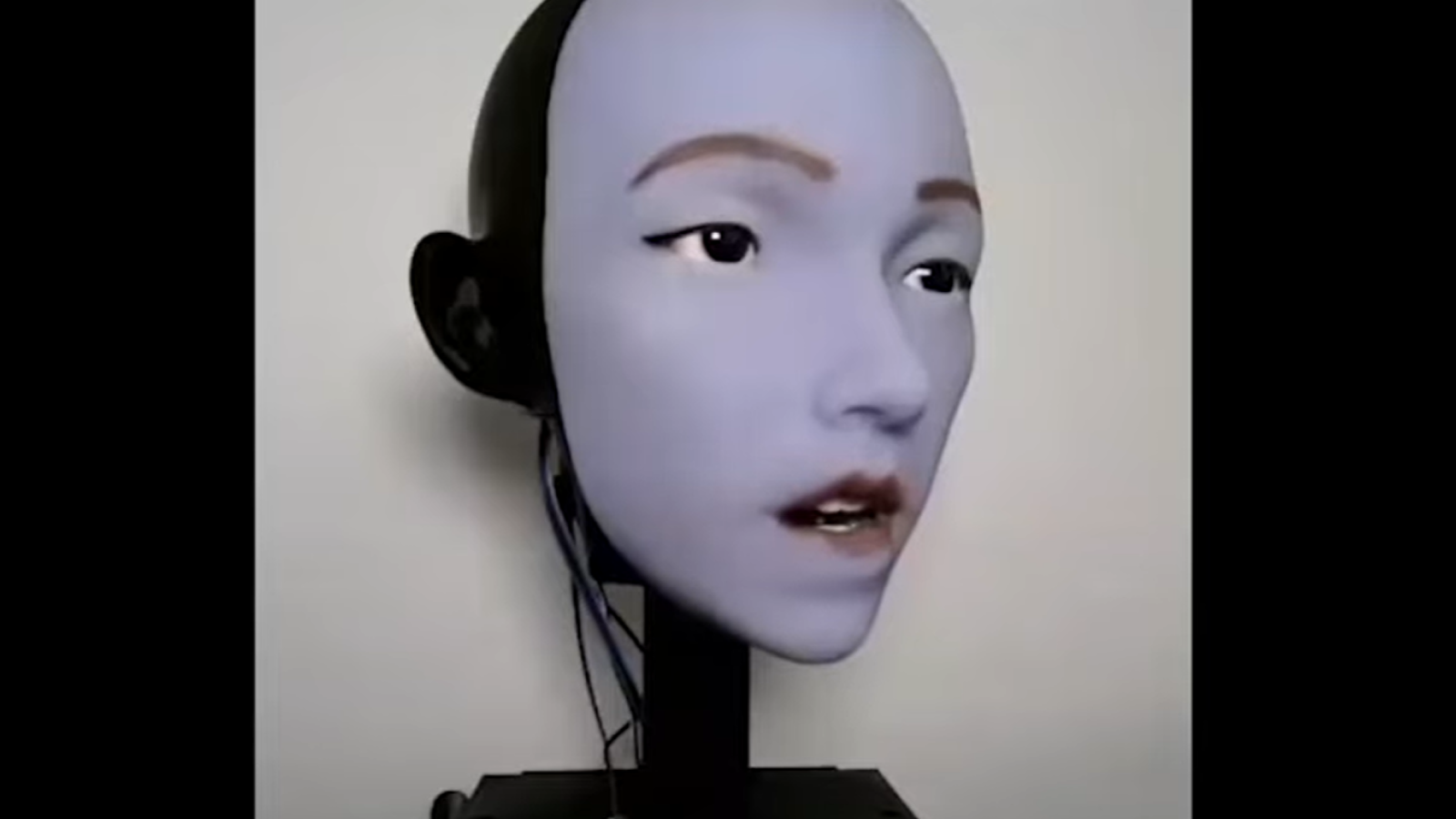'World's rarest' giraffe born without spots at Tennessee zoo
A zoo in Tennessee celebrated the birth of a rare spotless giraffe, but its lack of patches could harm its chances of survival.

A reticulated giraffe at a zoo in Limestone, Tennessee is going viral after being born without spots.
Zookeepers at Brights Zoo have dubbed the brown female giraffe, which was born on July 31, "the world's rarest" of the species and believe that she's the only solid-colored reticulated giraffe (Giraffa reticulata) in the world, according to a statement.
Despite being only a few weeks old, the long-necked mammal already stands at an impressive 6 feet (1.8 meters) tall.
Related: Giraffe sex is even weirder than we thought, and it involves pee
The only other known instance of a spotless reticulated giraffe dates back to the 1970s, when a baby named Toshiko was born sans spots at a zoo in Japan, according to archival photos.
A giraffe's spots are paramount for the animal's survival, especially in the wild, where the colored patches camouflage the animals from predators in the savannas of Africa, according to the Denver Zoo.

But that's not their only purpose. Beneath each spot resides a "sophisticated network of blood vessels" that branch off into smaller vessels that help release body heat, according to the Giraffe Conservation Foundation. That means the currently nameless baby giraffe might be at greater risk of overheating.
Get the world’s most fascinating discoveries delivered straight to your inbox.
While the spotless baby is currently doing well, giraffes in the wild are struggling.
"Wild populations are silently slipping into extinction, with 40% of the wild giraffe population lost in just the last three decades," Tony Bright, the zoo’s founder, said in the statement.
The zoo is currently running a naming contest for the newest member of its family on its Facebook page.
Jennifer Nalewicki is former Live Science staff writer and Salt Lake City-based journalist whose work has been featured in The New York Times, Smithsonian Magazine, Scientific American, Popular Mechanics and more. She covers several science topics from planet Earth to paleontology and archaeology to health and culture. Prior to freelancing, Jennifer held an Editor role at Time Inc. Jennifer has a bachelor's degree in Journalism from The University of Texas at Austin.
 Live Science Plus
Live Science Plus





